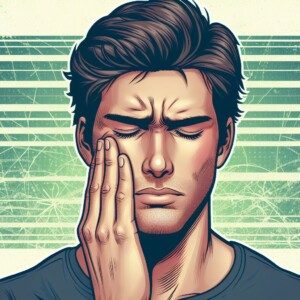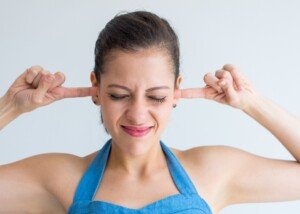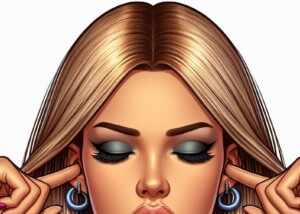
If you have TMJ disorder (TMD), it would definitely be in your best interest to avoid loud music, as this can aggravate the condition.
“Regardless of the underlying mechanism behind TMJ disorders, the symptoms are mainly in the trigeminal system,” says Brijesh Chandwani, DMD, BDS, Diplomate, American Board of Orofacial Pain, with Connecticut & NY TMJ.
“Trigeminal nerve is one of the main nerves of the face, head and jaw region,” continues Dr. Chandwani.
“Migraines and TMJ disorders are common pain disorders affecting the trigeminal system, and there may be some overlap in mechanisms.
“Research from migraine headaches has shown that certain individuals with headaches (and TMJ disorders) tend to have sensitivity to sounds while others do not.
“If loud sounds (or bright light) do trigger or worsen jaw pain, then avoiding it is a rational path to undertake.
“Alternatively, if loud noise or music is critical to someone, taking a preventive medication or preventive hot/cold compress over the painful area may help avoid a flare-up of TMJ disorder.
“If loud music (or noise) triggers pain, it is possible that the pain is due to migraine headache, and primary physician or neurologist should be consulted.”
You Do Not Need to Tolerate Loud Music
If loud music is making your TMJ issue worse, then don’t stay silent. Speak up!
I don’t have TMD, but I AM very vigilant about preserving my excellent hearing by avoiding subjection to loud music.
This is easily accomplished with custom made earplugs.
But one day I didn’t have them with me and went inside a Whole Foods. The music that was piped in through the store was ridiculously loud.
I told the manager and soon after it was lowered! Yes, speaking up can make a difference.
If the music is too loud at your gym, ask the front desk person to lower it.
Occasionally it is so loud that even with my earplugs in, I can tell that more than 85 decibels are getting through.
I will ask the front desk attendant to lower the volume. I have never been met with flack doing this.
Now if you’re at a night club and the loud music is aggravating your TMJ condition, then it will be futile requesting a lower volume. Wear custom made earplugs.
Check with your local hearing aid center; many will take a mold of your ear to have the custom made plugs created.

Dr. Chandwani has 15+ years of experience focusing on TMJ disorders and sleep disorders.
 Lorra Garrick has been covering medical, fitness and cybersecurity topics for many years, having written thousands of articles for print magazines and websites, including as a ghostwriter. She’s also a former ACE-certified personal trainer.
Lorra Garrick has been covering medical, fitness and cybersecurity topics for many years, having written thousands of articles for print magazines and websites, including as a ghostwriter. She’s also a former ACE-certified personal trainer.
.









































